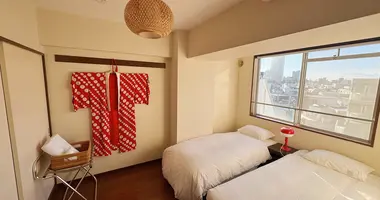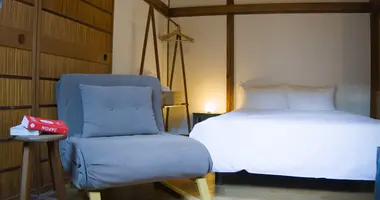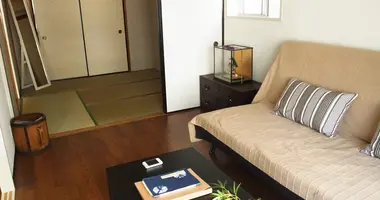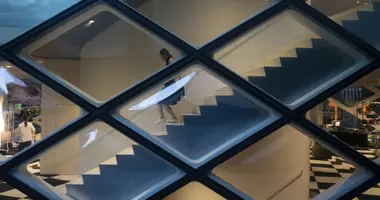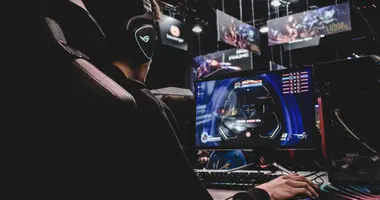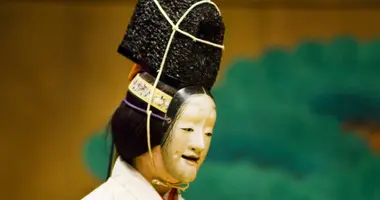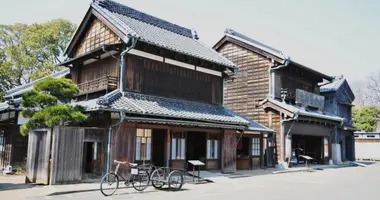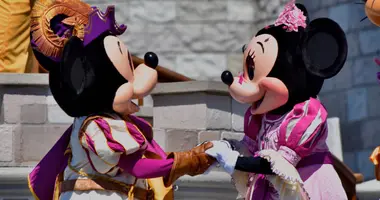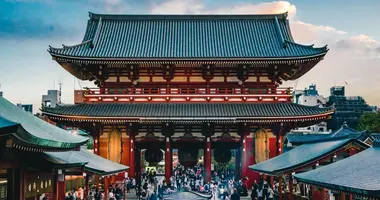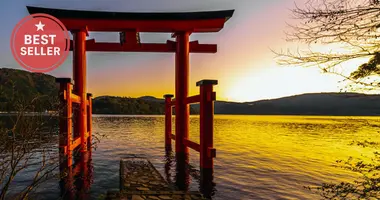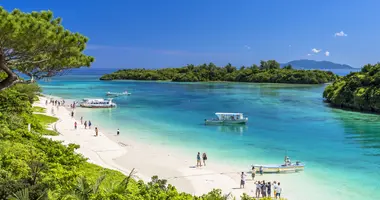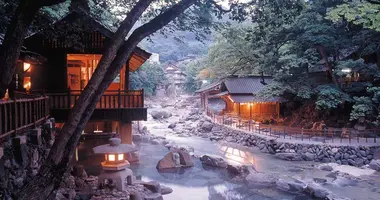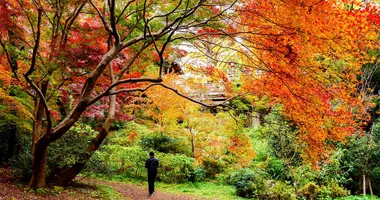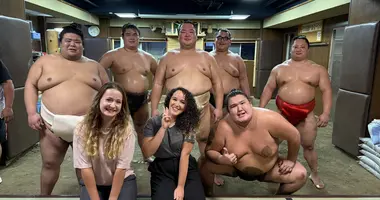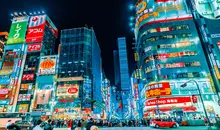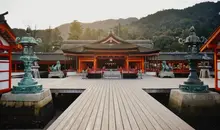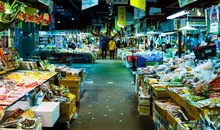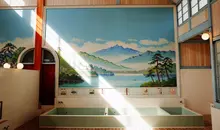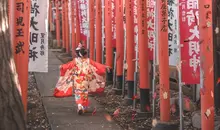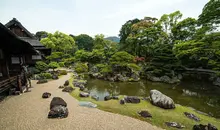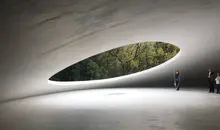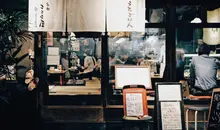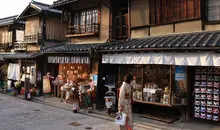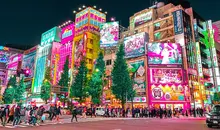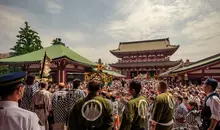Tokyo Yakult Swallows
- Published on : 31/08/2016
- by : Japan Experience
- Youtube
The Tokyo Yakult Swallows baseball team play their home matches at the historic Meiji Jingu Stadium in Tokyo.
Japanese Baseball - The Tokyo Yakult Swallows
That Sporting Life - The Tokyo Yakult Swallows
Christopher KL Lau
All thriving cities have an ingrained and distinctive sporting culture and the mass urban hub of Tokyo is no different with a multitude of sporting options to chose from.
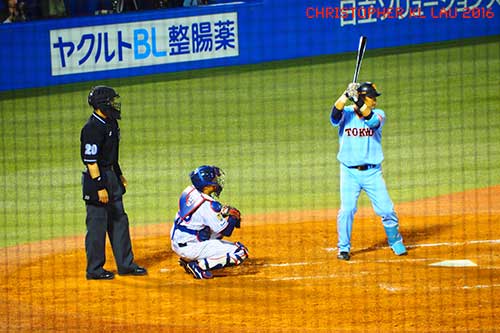 Tokyo Yakult Swallows v Yomiuri Giants
Tokyo Yakult Swallows v Yomiuri Giants
For baseball aficionados, fans are spoilt for choice as the Japanese capital is home to several well established teams all of whom have a wide fan base and whose stadia are easily accessible.
Sumo wrestling is officially the national sport of Japan though when it comes to team sports then baseball still edges out soccer in terms of viewing and stadia attendances. As in America, baseball is a beloved national sporting pastime for families which is passed from generation to generation.
Baseball has acquired mythical and legendary status in Japan since first introduced to the country in 1872 by the American, Horace Wilson, an English professor at the Kaisei Academy in Tokyo. Since its beginnings in the early Meiji Period baseball has grown to be an integral part of Japanese culture and society.
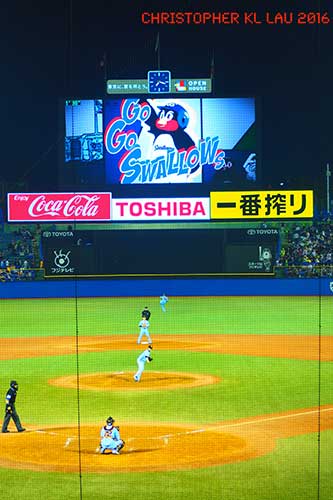 Tokyo Yakult Swallows v Yomiuri Giants at Meiji Jingu Stadium
Tokyo Yakult Swallows v Yomiuri Giants at Meiji Jingu Stadium
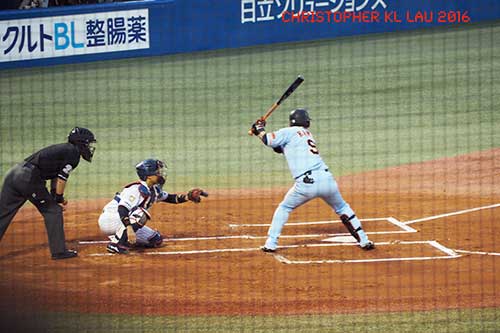 Tokyo Yakult Swallows v Yomiuri Giants at Meiji Jingu Stadium
Tokyo Yakult Swallows v Yomiuri Giants at Meiji Jingu Stadium
Tokyo Yakult Swallows - Meiji Jingu Stadium
The Yakult Swallows are one of the most beloved Japanese baseball teams and are held in deep affection by many fans. The Tokyo Yakult Swallows play their games at the time honored Meiji Jingu Stadium, the second oldest ballpark in Japan, with all areas of the stadium steeped in history.
The Yakult Swallows are not as successful in terms of trophies as their cross town and Central League rivals, the Tokyo Yomiuri Giants. The Giants have huge financial clout while the Swallows represent the ordinary 'everyman' in many ways, who has endured in life but is still optimistic.
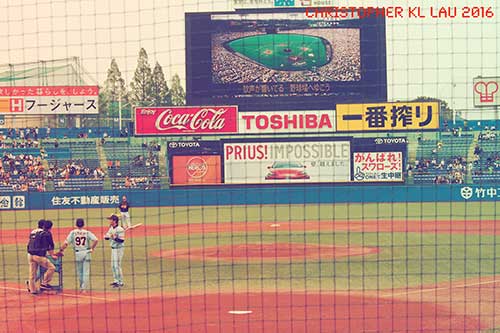 Tokyo Yakult Swallows v Yomiuri Giants at Meiji Jingu Stadium
Tokyo Yakult Swallows v Yomiuri Giants at Meiji Jingu Stadium
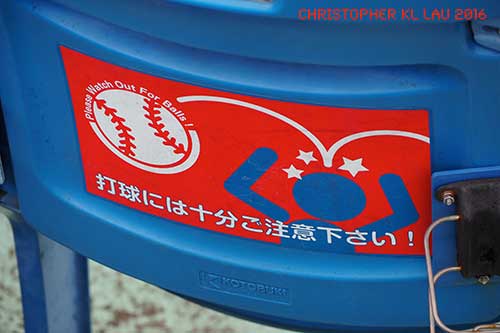 Meiji Jingu Stadium, Tokyo
Meiji Jingu Stadium, Tokyo
The Yakult Swallows have had their profile boosted through the years by their number one celebrity fan, the author Haruki Murakami, who once stated that it was at a Swallows game in 1978, while he sat watching the game, that he was somehow inspired to write and produce novels.
From experience, baseball fans in Japan are good natured and fan culture involves cheering fervently when their respective teams take to bat and then politely keeping silent when the opposition bat in their innings. Many fan groups also have bands which strike up some popular tunes as a game wears on. Such is the sense of community at a game, opposing fans often sit in close proximity to each other in a safe and friendly environment. An exception to this friendly rivalry can be the more intense Giants v Tigers - Tokyo v Osaka - games.
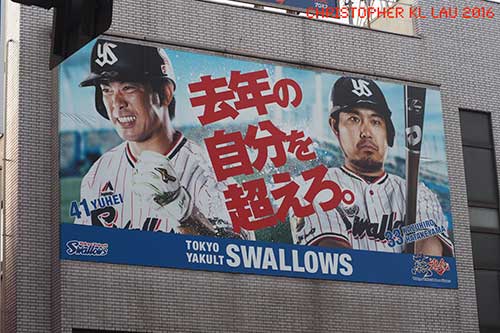 Tokyo Yakult Swallows billboard
Tokyo Yakult Swallows billboard
As baseball games can last a while, an assortment of staff walk back and forth inside the stadium selling traditional Japanese snacks and beers to hungry and thirsty punters.
The stadiums are also dotted around with souvenir shops and a host of bars and restaurants to truly make a baseball game in Japan a full day or evening experience with the buzz of excitement all around the stadium and surrounding area.
Access to Jingu stadium is relatively as there are four major stations within close proximity. These include Gaiemmae Station, Kokuritsu-Kyogijo Station as well as JR Shinanomachi Station and JR Sendagaya Station. From each station it is approximately a ten-minute walk to reach the stadium and with the throng of fans heading in the same way, it is very hard to get lost!
Whether you are a baseball fan or not, a visit to Jingu Stadium on a cool and breezy evening is an entertaining experience and totally worth the price of admission.
For tickets and directions to watch the Tokyo Yakult Swallows, please visit the team's official homepage www.yakult-swallows.co.jp/en or book tickets to any Japanese baseball game.
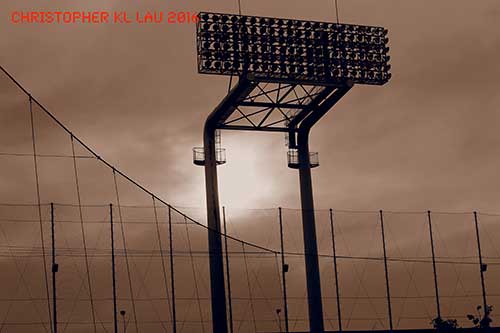 Tokyo Yakult Swallows' Meiji Jingu Stadium, Tokyo
Tokyo Yakult Swallows' Meiji Jingu Stadium, Tokyo
